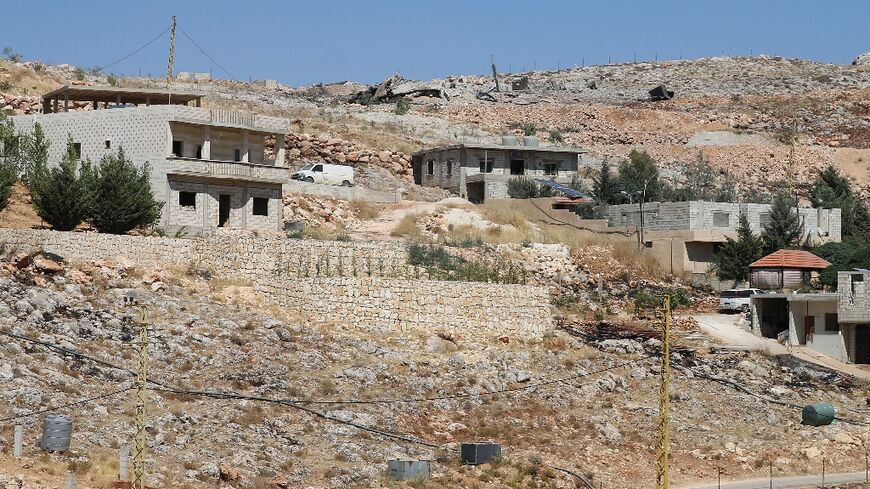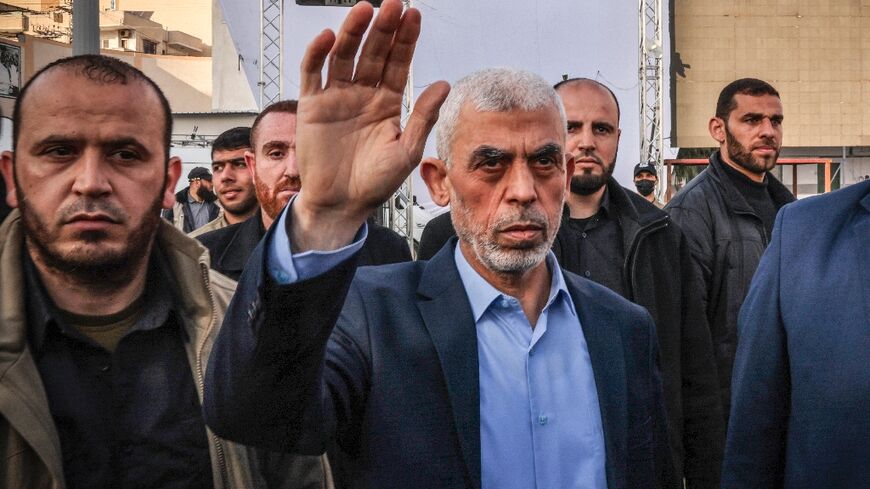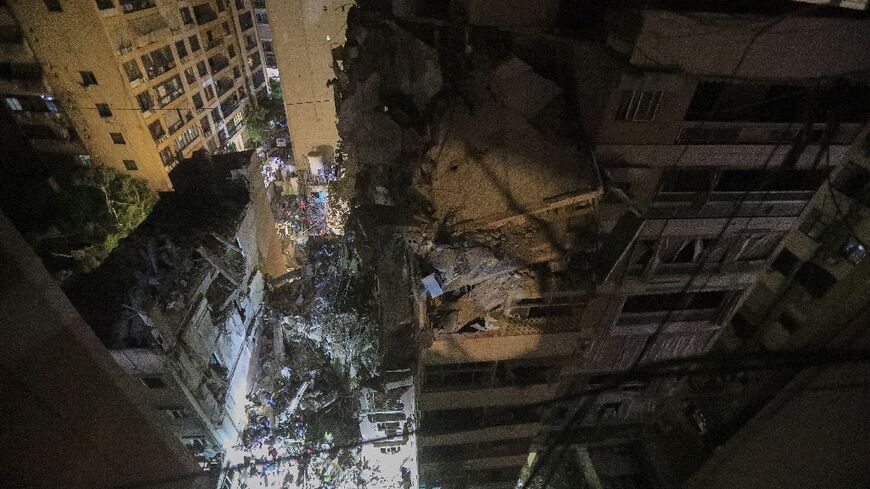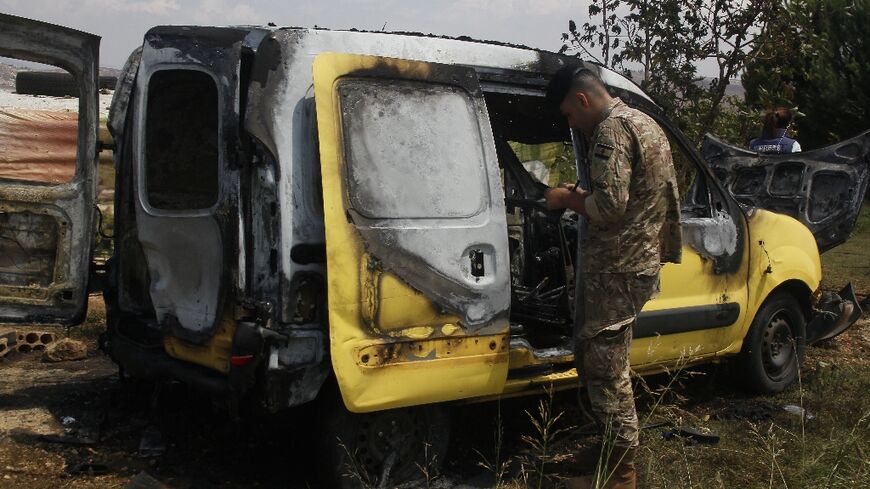Hezbollah says six fighters dead after Israeli strikes in Lebanon
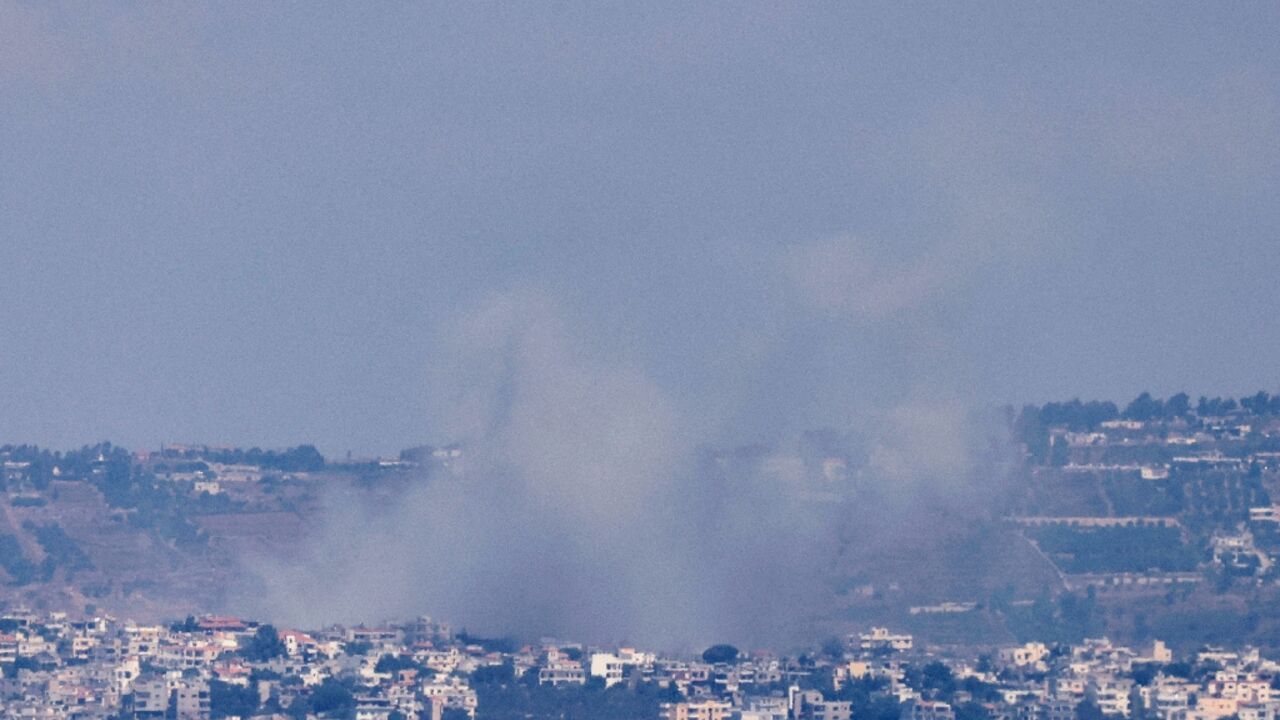
Lebanon's Hezbollah said six of its fighters were killed in Israeli strikes on Tuesday, with the group claiming cross-border attacks and low-flying Israeli warplanes breaking the sound barrier over Beirut.
Hezbollah has traded near-daily fire with Israel in support of its ally Hamas since the Palestinian militant group's October 7 attack on Israel triggered war in Gaza.
Tensions have soared in the past week as Iran and its allies vowed revenge for the killing, blamed on Israel, of Hamas's political leader Ismail Haniyeh in Tehran, and after an Israeli strike killed Hezbollah's top military commander Fuad Shukr in Beirut's southern suburbs.
Lebanon's health ministry said an "Israeli enemy raid on a house in the town of Mayfadun", near the southern city of Nabatiyeh, killed five people, while another Israeli strike in the Adaysseh area killed one person.
The Israeli military said its air force "struck a Hezbollah military structure" in the Nabatiyeh area that was being used "to advance terror attacks" against Israel.
The dead in both locations were "Hezbollah fighters", a security source told AFP, requesting anonymity because the matter is sensitive.
Hezbollah later announced six members had been killed "on the road to Jerusalem", the phrase it uses to refer to fighters killed by Israel.
The Iran-backed group said it launched "dozens of Katyusha rockets" at a military base in the Israeli-annexed Golan Heights in retaliation for the Israeli "attack and assassination" in Mayfadun.
The Israeli military said some 30 "projectiles were identified crossing from Lebanon" after sirens sounded in northern Israel and the Golan, while regional councils in the north urged residents to stay close to shelters and avoid public gatherings in open spaces.
- Sound barrier -
Hezbollah claimed several other attacks on Israeli positions on Tuesday, including one with "explosive-laden drones" targeting a barracks north of the coastal town of Acre.
The Israeli military said "a number of hostile UAVs (drones) were identified crossing from Lebanon", adding that "several civilians were injured to the south of Nahariya", near Acre.
It later said an initial inquiry indicated that one of its interceptor missiles "missed the target and hit the ground, injuring several civilians", adding that "the incident is under review".
Hezbollah said the drone attack was in response to an air strike on the southern village of Ebba on Monday that, according to the Israeli military, targeted a commander in the group's elite Radwan Force.
Low-flying Israeli military aircraft broke the sound barrier over Beirut Tuesday ahead of a speech by Hezbollah chief Hassan Nasrallah, Lebanon's National News Agency, a security source and AFP journalists said.
Iran and Hezbollah are "obliged to respond" to Israel for the killings of Haniyeh and Shukr, "whatever the consequences", Nasrallah said in the televised speech, marking a week since the strike on Beirut's southern suburbs.
The cross-border violence since October has killed some 556 people in Lebanon, mostly fighters but also including at least 116 civilians, according to an AFP tally.
On the Israeli side, including in the annexed Golan Heights, 22 soldiers and 25 civilians have been killed, according to army figures.
Diplomatic efforts have gone into overdrive seeking to avert a regional conflagration and full-blown conflict between Israel and Hezbollah, who last went to war in the summer of 2006.


